Thinking Strategically
Pocket Mentor Series
The Pocket Mentor Series offers immediate solutions to common challenges managers face on the job every day. Each book in the series is packed with handy tools, self-tests, and real-life examples to help you identify your strengths and weaknesses and hone critical skills. Whether you're at your desk, in a meeting, or on the road, these portable guides enable you to tackle the daily demands of your work with greater speed, savvy, and effectiveness.
Books in the series:


Thinking
Strategically
Expert Solutions to
Everyday Challenges




Contents
xi
Thinking Strategically: The Basics
A look at key elements of strategic thinking.
How to begin setting the stage for thinking strategically.
Suggestions for focusing on important goals.
Ideas for seeing connections and paring down the number of issues to grapple with.
Tips for generating alternative courses of action.
Ideas for sorting through and prioritizing information.
Recommendations for staying focused on your objectives.
Tactics for striking the right balance in the course of action you've chosen.
Worksheets to help you assess your strategic thinking skills.
A helpful review of concepts presented in this guide. Take it before and after you've read the guide, to see how much you've learned.
Further titles of articles and books if you want to go more deeply into the topic.
For you to use as ideas come to mind.
Mentor's Message:
Why Learn to
Think Strategically?
As a manager, you work in one part of an organization that has many parts. And every day, you make decisions-choices that can help or hurt your organization, depending on how strategic they are. To make decisions that generate the best possible results overall for your organization, you need to consider the wider implications of each course of action you're considering. And you have to work around the fact that you'll always have limited (and often confusing) information with which to approach complex decisions.
To make the wisest possible choices, you need to think strategically. But thinking strategically is a process consisting of a set of skills that you must practice, learn, and apply in a particular sequence. This book helps you master the skills essential to the process. You'11 start by discovering how to understand the business environment you're operating in and how to clarify objectives you want to achieve-to set the stage for making a strategic decision. Next, you'll learn how to apply five crucial strategic thinking skills: identifying relationships, patterns, and trends in your business environment; thinking creatively; analyzing information; prioritizing your actions; and making the tradeoffs that inevitably come with choosing one course of action.
Master the strategic thinking process and its specific skills, and you become a true strategic partner in your organization.
David J. Collis, Mentor
David J. Collis is a professor in the strategy unit at the Harvard Business School, where he teaches in the MBA and Executive Education programs. He is an expert on corporate strategy and global competition, and is the author of the recent books Corporate Strategy (with Cynthia Montgomery) and Corporate Headquarters (with Michael Goold and David Young). His work has been frequently published in Harvard Business Review, Academy of Management Journal, Strategic Management Journal, European Management journal, and in many books, including Managing the Multibusiness Company, International Competitiveness, and Beyond Free Trade. In 2008, Professor Collis won the 50th Anniversary McKinsey award for the best article published in Harvard Business Review in that year.
In addition to teaching, Professor Collis consults to several major U.S. corporations, and serves on the board of trustees of the Hult International Business School, and the advisory boards of Vivaldi Partners and Folderwave. He is also the cofounder of the eLearning company E-Edge, and of the advisory firm Ludlow Partners.
Thinking
Strategically:
The Basics
An Overview of
Thinking
Strategically
 our boss just told you to "think strategically"-but what does that mean? In the pages that follow, we'll take a closer look at several key aspects of thinking strategically-what it is, why it's important, who needs to think strategically, what distinguishes strategic thinkers, and what are the steps in the strategic thinking process.
our boss just told you to "think strategically"-but what does that mean? In the pages that follow, we'll take a closer look at several key aspects of thinking strategically-what it is, why it's important, who needs to think strategically, what distinguishes strategic thinkers, and what are the steps in the strategic thinking process.
What is strategic thinking?
In its most basic sense, strategic thinking is about analyzing opportunities and problems from a broad perspective and understanding the potential impact your actions might have on others. Strategic thinkers visualize what might or could be, and take a holistic approach to day-to-day issues and challenges. And they make this an ongoing process rather than a onetime event.
Like other managers, you routinely encounter complex situations, difficult problems, and challenging decisions. Your job is to deal with these situations as best you can by using the information you have. In an ideal world, you would have access to all the information you need to navigate through these challenges. Unavoidably, however, you have only a limited amount of information to work with. And because you sit in a particular part of your organization, you have a limited view of the forces that lie outside your sphere of influence.
Strategic thinking helps you overcome these limitations. When you think strategically, you lift your head above your day-to-day work and consider the larger environment in which you're operating. You ask questions and challenge assumptions about how things work in your company and industry. You gather complex, sometimes ambiguous data and interpret it. And you use the insights gained to make smart choices and select appropriate courses of action.
Moreover, you do all these things with an eye toward generating the best possible business results tomorrow, using the opportunities presented to you today.
Why is strategic thinking important?
When you and others in your organization think strategically, you generate important benefits for your organization:
You chart a course for your group that aligns with the overall corporate strategy.
You make smart longterm decisions that complement and align with decisions that others in your organization are making.
You gain your employees' commitment to supporting your decisions.
You boost your group's performance and maximize business results.
You foster a culture that supports fresh thinking and embraces strategic initiative.
Strategic thinking also nets you valuable professional and personal benefits-including the respect and appreciation of your supervisor, peers, and direct reports.

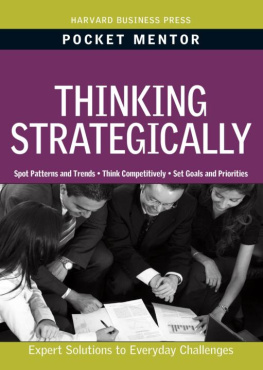
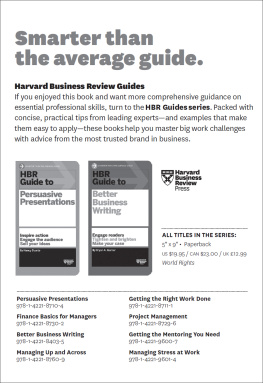

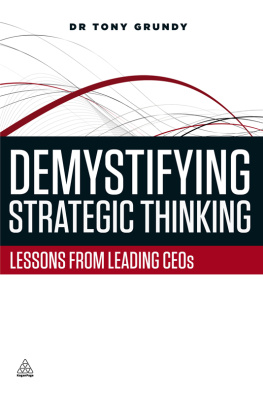
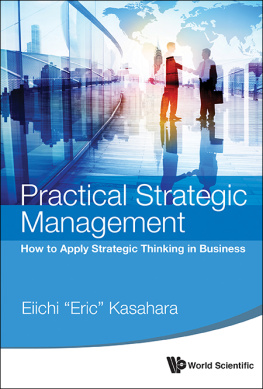
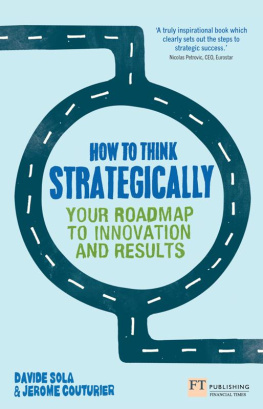
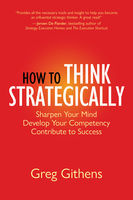
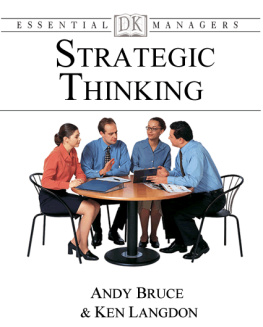

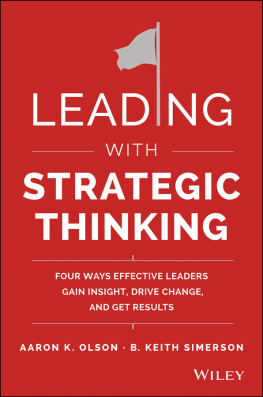




 our boss just told you to "think strategically"-but what does that mean? In the pages that follow, we'll take a closer look at several key aspects of thinking strategically-what it is, why it's important, who needs to think strategically, what distinguishes strategic thinkers, and what are the steps in the strategic thinking process.
our boss just told you to "think strategically"-but what does that mean? In the pages that follow, we'll take a closer look at several key aspects of thinking strategically-what it is, why it's important, who needs to think strategically, what distinguishes strategic thinkers, and what are the steps in the strategic thinking process.